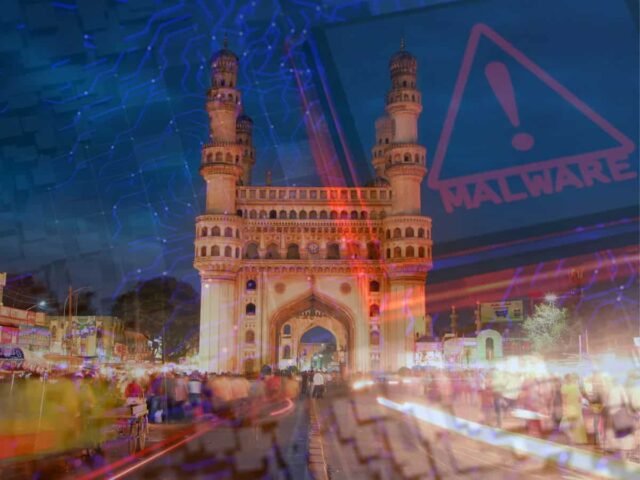Hyderabad: In the latest edition of India Cyber Threat Report 2025, Telangana holds the highest number of malware detection rates among Indian states, while Hyderabad stood third among Indian cities.
In the report published on December 5 by the Data Security Council of India (DSCI), Telangana stood first with 55.90 detections per endpoint, (15.03 per cent). The report suggests that the malware detections were inspired by the IT corridor in Hyderabad, and the state’s law enforcing system being in cohesion with information technology trends in the country.
Trellix, a cybersecurity platform, defines end-point detection as an integrated security solution that continuously monitors and collects from each device connected to a network, with rules-based automated response and analysis capabilities.
The study revealed 51.13 per cent of the total malware detentions in India are concentrated across ten states, indicating a significant regional variation in malware incident patterns and also exposing possible threats. The southern technology belt, comprising Telangana, Karnataka and Tamil Nadu contributed to 36.37 per cent of malware detection, with these states having high technology sector presence and digital service adoption.
While Telangana topped states in the list, Tamil Nadu stood second for malware detection with 44.54 detection per endpoint (11.97 per cent), helped by Chennai’s tech hub and infrastructure.
Delhi stood third in the list with 43.86 detections per endpoint, owing to the national capital region’s high-value targets, which is also a huge business hub.
Hyderabad 3rd for malware detection
According to the report, Hyderabad and Bengaluru together account for 22.48 per cent of total malware detection in India, owing to the significant IT infrastructure.
Among Indian cities, Hyderabad had significant efficiency in malware detection, with 54.93 detections per endpoint (11.55 per cent). Bengaluru, the major IT hub of India came second, while Surat topped the list, owing to its strong industrial presence.
While other cities including Jaipur, Chennai, and New Delhi scored similar rates of malware detection, Mumbai stood far behind with a significantly low malware detection rate, despite being the commercial capital of India.







